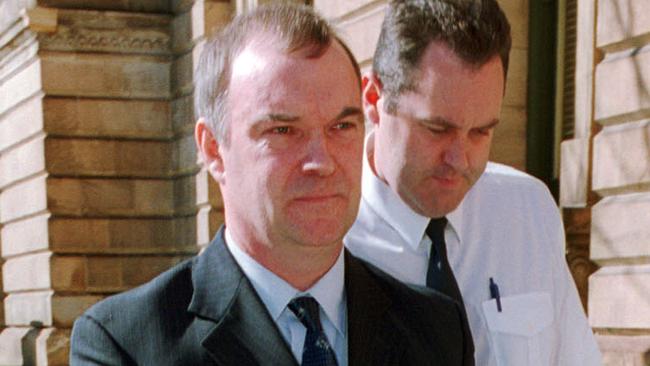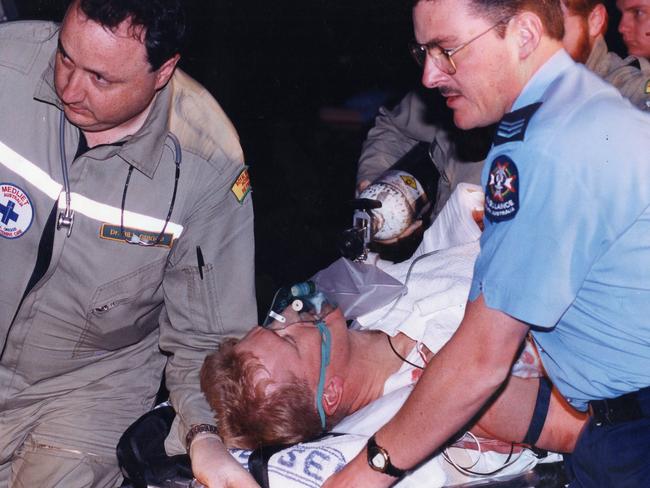Analysis by Andrew Dowdell: New laws designed to protect South Australian community
UNDER previous laws, dangerous offenders such as Tony Grosser would finish their sentences and walk from prison as free men — but now things have changed. Reporter Andrew Dowdell explains.

SA News
Don't miss out on the headlines from SA News. Followed categories will be added to My News.
UNDER previous laws, offenders such as Tony Grosser would finish their lengthy sentences and walk from prison as free men.
Grosser, who is seven days away from the end of his 22-year sentence for shooting STAR Group officer Derrick McManus in 1994, was previously refused parole on the grounds that he would remain a danger to the community.
It was cases such as Grosser’s which prompted the State Government to introduce the High Risk Offenders Act, which came into effect several months ago.
Grosser’s case is the first time Attorney-General John Rau has attempted to use the legislation, which can confine offenders to bail or parole-like conditions even after they have served their prison terms.

Under the legislation, a Supreme Court judge can impose conditions such as 24/7 monitoring of a person’s movements through an electronic ankle bracelet.
Released offenders can also be forced to comply with the directions of community corrections officers and are banned from possessing any weapons including firearms.
As in Grosser’s case, the Attorney-General can also seek conditions which stop an offender from going to certain towns or suburbs or from approaching victims or their families or friends.
Prosecutors told Justice Tim Stanley that he could place an interim order on Grosser when he is released next Monday, before making a final determination once armed with further evidence, including medical reports into Grosser’s mental state.
If Grosser, or anyone subject to such an order, breaches those conditions or commits further offences, they can be locked up again.
The legislation clearly states that the paramount consideration in making such an order is the safety of the community.
Grosser has consented to some — but not all — of the conditions sought, and objects to being subjected to electronic monitoring because he argues he is no longer a risk to the community.


